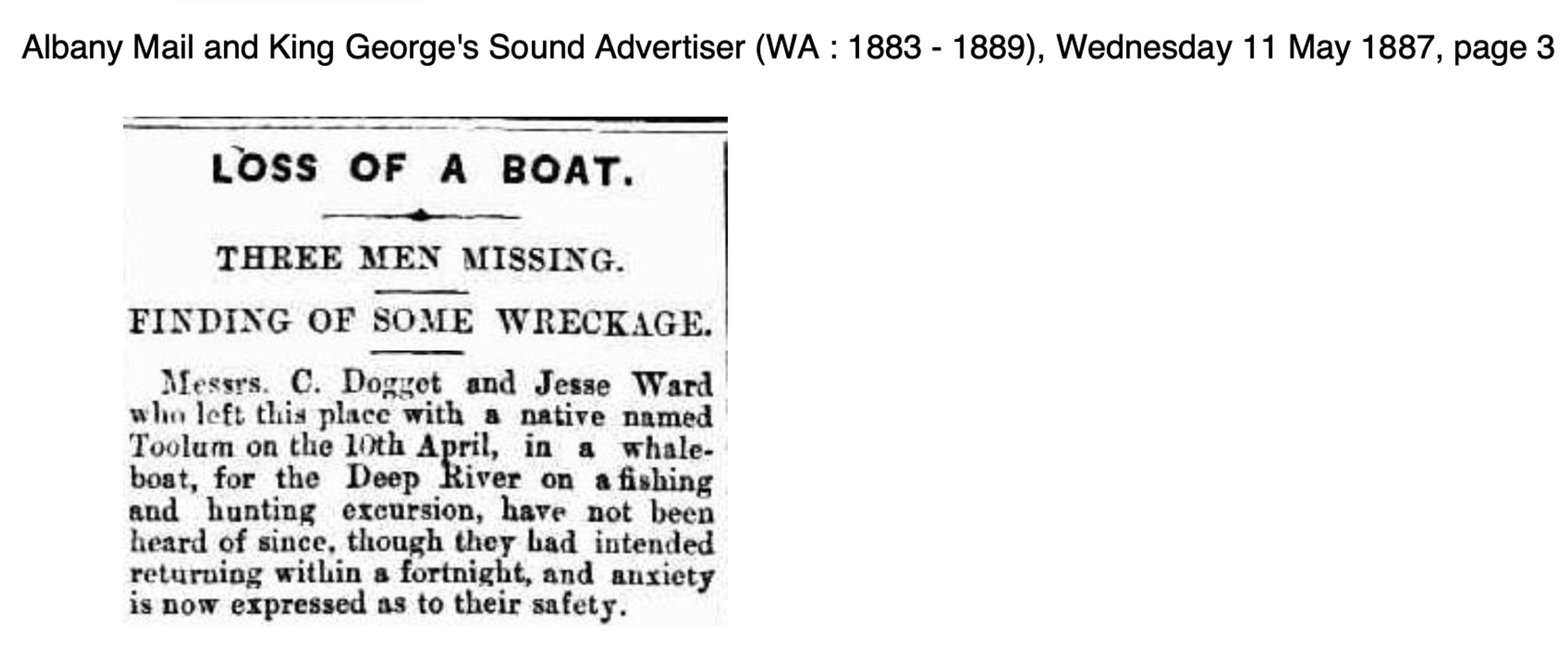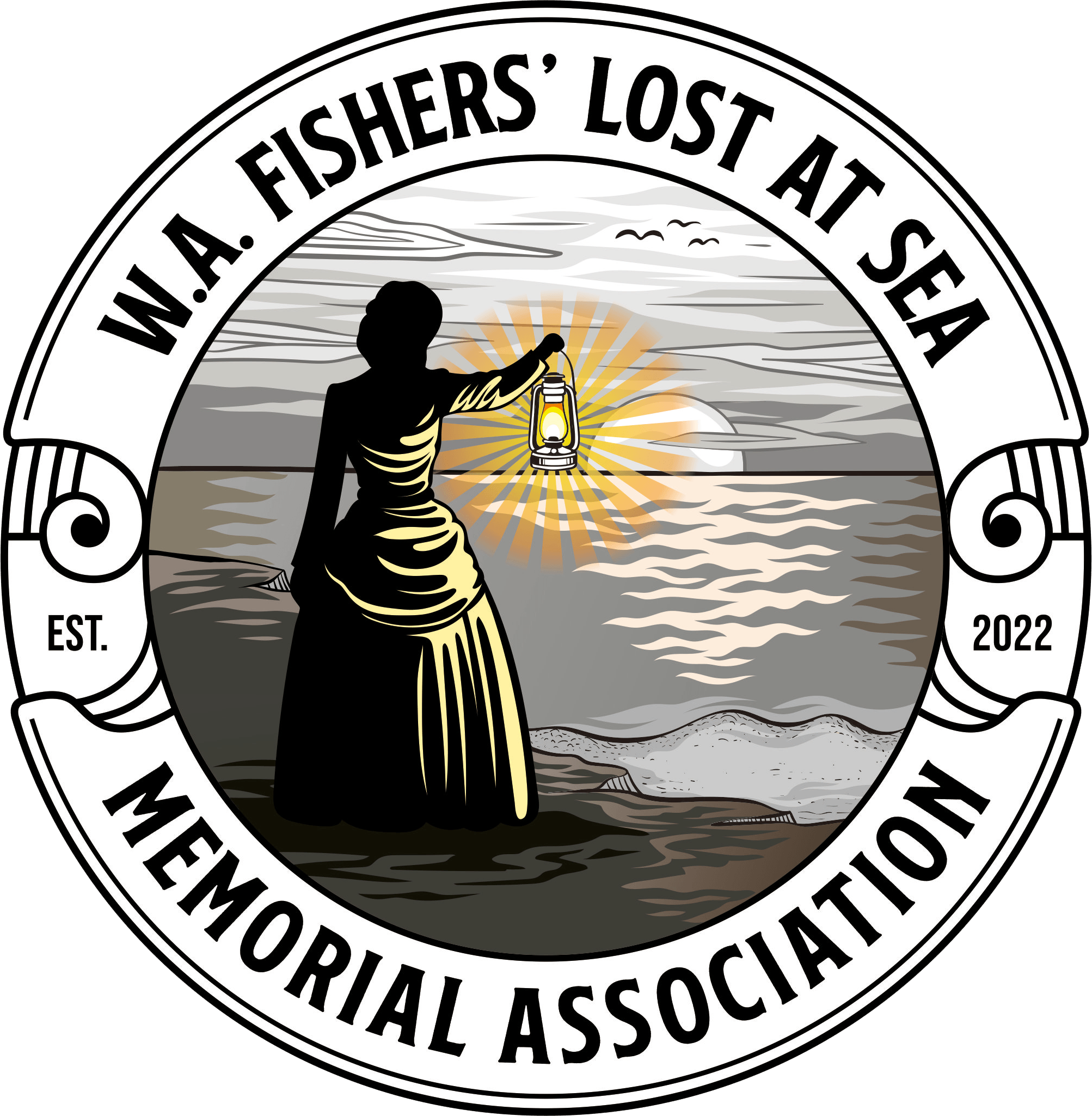Doggett, Ward and Toolum
Charles Doggett
Jesse Ward
Toolum
Bodies never recovered
April - May 1887

Albany Mail and King George's Sound Advertiser, Wednesday 11 May 1887
On 10 April 1887, three men, Charles Doggett, Jesse Ward, and an Aborigine named Toolum, left Albany in a wooden sloop-rigged whale-boat intending to go hunting and fishing at Deep River. This river flows into Nornalup Inlet, near present day Walpole. The men were to return within a fortnight.
Whale-boats were open boats 8.5–9 metres long, with a beam of about 1.8 metres. They had only 12mm planking, usually of a light wood, many small ribs, and one mast, as well as a rudder and tiller. The six oars were long and included a sweep, or steering oar, of about 6.7 metres in length.
On 11 May 1887, The Albany Mail reported that the three men had not been heard from since they had left Albany four weeks earlier. Millar Brothers’ sawmill timekeeper at Torbay, Thomas Lees, advised that James Scott had been fishing three days previously, and had found the broken parts of a whale-boat washed up on the beach. The bits of the boat were newly painted red, black and slate, the colours of the missing boat. Also found were three 16-foot (4.9 m) oars, a provision box and a billy can.
The steam launch, Jessie, was chartered at a cost of £15, and left immediately with a party of water police, under Coxswain Spencer Hayman, to search the coast and islands for the missing men.
The Jessie was towing another whale-boat, and this was left about two miles west of West Cape Howe. Its crew was:
…composed of N. Fisher, J. Doggett, Geakes, Turner, Gorman and Cobert, to find her way to Deep River and continue the search there. Those in the launch meanwhile went to Mutton Bird Island, where they found Mr W. McKail, who had just discovered the whale boat’s mast (Albany Mail, 14 May 1887: 3f).
The mast had been battered, by being washed against rocks. Coxswain Hayman and his men also searched the bush around Torbay and for four miles westward. The three men were not found, but the searchers found most parts of the missing whale-boat, with the exception of the stem, sternpost and rudder. They also found a keg marked T.S. on one end, and branded P. & J.H.
A few days later, a straw hat, identified as belonging to Toolum was picked up on the rocks at West Cape Howe. Nearby, there was a strong unpleasant scent arising from a decomposing body. It is unclear if this body was ever recovered, or identified.
